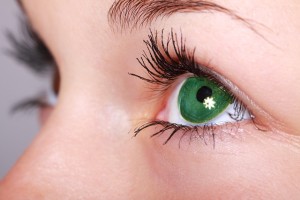April is Women’s Eye Health and Safety Month
by Dr. Priyal Gadani
Did you know that vision loss affects women more than men? The reason for this, according to the National Eye Institute, is likely because women have a greater life span than men, which makes women more likely to be affected by age-related eye diseases in their lifetime. Age-related eye diseases include conditions such as macular degeneration, cataracts, diabetic retinopathy, and glaucoma. Auto-immune diseases such as multiple sclerosis, lupus, and rheumatoid arthritis are also more likely to affect women, all of which can cause ocular manifestations, which can be vision-threatening. Furthermore, women may experience eye changes due to pregnancy and hormonal changes after menopause.
April has been designated as Women’s Eye Health and Safety Month by Prevent Blindness America to help educate women about conditions which can cause vision loss.
Milan Eye Center recommends the following guidelines to help women maintain eye health and good vision for years to come:
- Women age 40 and older should have an annual dilated eye exam, which can help detect silent diseases of the eye, or those diseases which do not have warning signs in the early stages. Keeping your eyes healthy by having a comprehensive dilated exam annually is one of the best ways to keep you seeing the best you can. Without pupil dilation, many common eye diseases such as glaucoma, diabetic eye disease, and retinal tears and detachments may go undiagnosed in the early stages.
- Monitor your vision: Check your vision often and one eye at a time by covering each eye. If you notice vision changes or flashes or floaters, see an eye doctor immediately.
- Eat a well-balanced diet: Green, leafy vegetables such as spinach, kale, and collard greens, and fruits such as berries are protective of the macula by providing a good source of antioxidants. Oily fish such as salmon or tuna have high amounts of omega-3 fatty acids, which have been shown to help with dry eye and macular health. Age-related eye disease studies have found that vitamin A, C, E, lutein, zeaxanthin, zinc, and omega-3 fatty acids are helpful in slowing down certain eye diseases, and the best source of these vitamins are from a well-balanced diet. Remember that more is not always better! Taking too many vitamin supplements may not be good for you, so make sure to consult with your primary medical doctor before starting any new vitamins.
- Exercise: Maintaining a healthy weight and good cardiovascular health is important for maintaining good eye health. Elevated blood sugar from diabetes and obesity, high blood pressure, and high cholesterol have been linked to devastating eye conditions such as glaucoma, diabetic retinopathy, and macular degeneration
- Quit smoking or never start: You’ve heard about the damage that smoking can cause on your lungs and body, but did you know that smoking can be just as bad for your eyes? Research shows smoking is linked with an increased risk of developing age-related macular degeneration, cataracts, as well as other eye diseases, which can cause vision loss.
- Protect your eyes: Remember to wear safety glasses, safety shields, or eye guards at home or at the workplace to provide protection from foreign bodies or chemical splashes, which could cause permanent damage to the eye and loss of vision. Furthermore, wearing sunglasses with UV protection or a large brimmed hat when outdoors may help reduce exposure of eye structures to UV radiation. You can reduce your risk of developing cataracts and macular disease by slipping on some sunglasses when you head outdoors, not to mention they are a great fashion accessory too! Have fun choosing a flattering pair of sunglasses (or two!) but remember to look for ones that block out 99-100 percent of both UV-A and UV-B radiation.
- Know your family history: Ask your family members about their eye health. Oftentimes, eye diseases can run in the family, and knowing whether you have a genetic predisposition for an eye disease can help with early detection. If you or anyone in your family has an eye disease such as glaucoma, remember to have an annual check up to catch diseases early and encourage your family members to get checked too.
- Give your eyes a break: If you spend a lot of time in front of the computer, focusing for long periods can cause eye strain and eye fatigue. Also, when you’re concentrating hard, you don’t blink as often, leading to dryness of the eyes. Remember to take a break every 20 minutes or so, and look into the distance about 20 feet away for about 20 seconds. This can help your eyes feel a lot less tired by the end of the day.
- Practice good hygiene: To avoid infection, make sure to throw away eye cosmetics periodically to prevent continued use of contaminated eye makeup. Always completely remove all eye makeup before going to bed. Also, remember to wash your hands with antibacterial soap before handling contact lenses or touching your eyes. Always disinfect contact lenses as instructed by your eye care professional and replace them as directed. Overwearing old contact lenses and sleeping in contact lenses can cause painful eye infections called corneal ulcers, which can cause permanent loss of vision.
- Remember the eyes are connected to your body: See your primary medical doctor regularly for routine physicals. Systemic health issues can often cause eye diseases and early diagnosis of these conditions is important to prevent vision loss.
